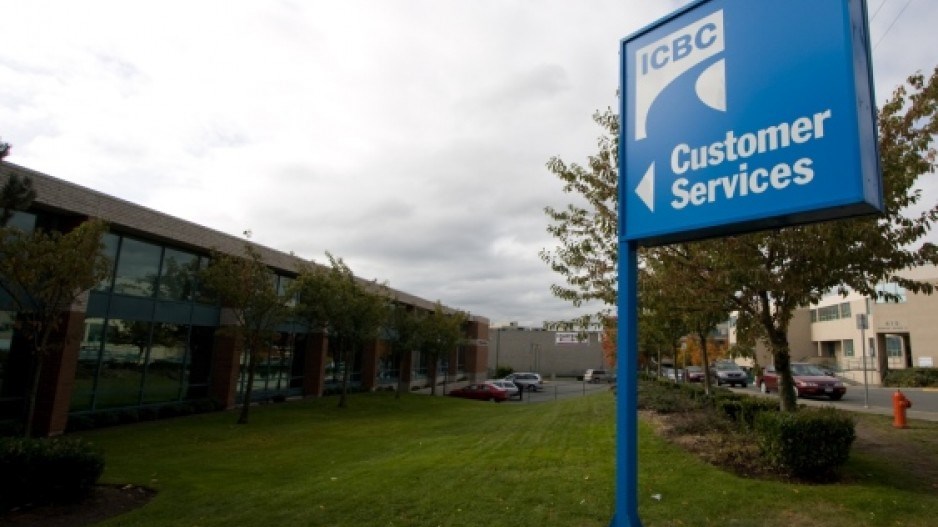The Insurance Corp. of B.C. is warning that rising injury claims could force it to seek a 6.7 per cent increase in basic car insurance rates this year.
The corporation has filed an application with the B.C. Utilities Commission, but said it will wait two months before proposing a specific rate.
“If we were to file our full application today, we would need to ask for a 6.7 per cent increase,” ICBC president Mark Blucher said. “And that’s in the large part due to what has been an unexpected and very rapid escalation in the number of injury claims we’ve received in the last 12 months.”
Blucher said ICBC will spend the next two months working with government officials to try to reduce the increase, which would cost drivers $4 to $4.50 a month on average.
Transportation Minister Todd Stone called a 6.7 per cent hike “unacceptable” and said government staff will work with ICBC to lower it.
“We’ve said: ‘No, let’s take a pause here.’ Let’s roll up our sleeves. All hands on deck. Six-point-seven per cent is not acceptable.”
The cost of bodily-injury claims topped $2 billion in 2014 and is expected to hit $2.3 billion this year — an increase of almost $900 million or 64 per cent since 2008, ICBC said.
At the same time, the corporation said the number of injury claims climbed by about 7,000 claims to 68,000 over the past 12 months.
“We know that the number of car accidents hasn’t changed,” Blucher said. “It’s been very, very stable for the last five years. But we know the number of claims that we’re receiving per accident — the number of people that are claiming per accident — is going up. So that’s something we need to look at.”
He said ICBC also will examine a jump in claims for relatively minor soft-tissue injuries as well as a potential increase in exaggerated or fraudulent claims. “We manage fraud very carefully now, but we’re going to have a second sober look at that as well.”
Once that analysis is done, ICBC will develop strategies for reducing claims and costs “so we can ask for a rate that’s lower than 6.7 per cent,” Blucher said. ICBC has to file its application by Oct. 30.
NDP critic Mable Elmore said reports of rising fees have become a “broken record” under the B.C. Liberals. “Families are getting crushed under this and getting less.”
Meanwhile, she said, the government continues to skim money from ICBC even as rates go up.
ICBC transferred $139 million in excess optional capital to the government in 2014 and expects to transfer a further $160 million this year.
“We hear the story that there’s a need to increase rates, but yet, at the end of the fiscal year, the B.C. Liberals are transferring hundreds of millions of dollars from ICBC to government coffers,” Elmore said. “And yet British Columbians are having to pay more for ICBC premiums. So it doesn’t add up.”
Stone said the “dividend payments” that ICBC transfers to the province come exclusively from the optional side of its business and do “not in any way impact the basic rates or the basic side of the business.”
He acknowledged, however, that about 80 per cent of B.C. drivers receive both basic and optional insurance through ICBC, and that reducing optional rates would ease overall cost pressures on drivers.
“In some years, the optional rates, to a certain degree, have been reduced and therefore have been able to offset some of the cost pressure and rate increases on the basic side of the business,” he said. “It’s too early at this point to determine exactly what the optional rates will be.”




